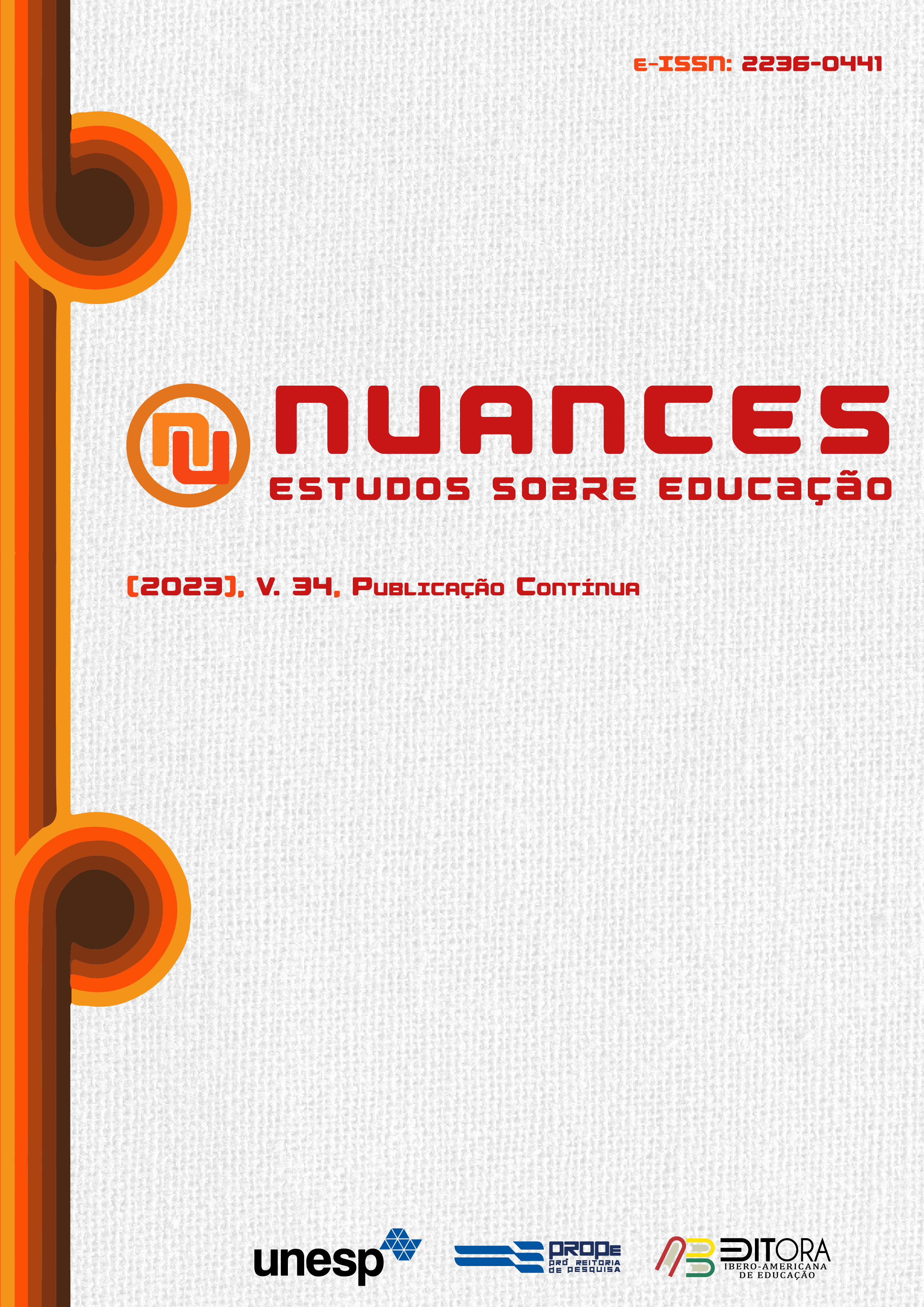Formas modernas de aprendizagem como meio de melhorar a atividade cognitiva dos estudantes
DOI:
https://doi.org/10.32930/nuances.v34i00.9963Palavras-chave:
Atividade cognitiva, Métodos interativos de ensino, DiscussãoResumo
Este artigo realiza uma análise da eficácia dos métodos de ensino interativos e identifica as práticas mais populares entre os alunos. O estudo explora diversas abordagens interativas, tais como trabalho em pequenos grupos, estudos de caso, jogos de negócios, exercícios de treinamento e autoavaliação. A pesquisa foi conduzida utilizando procedimentos teóricos como empíricos, e uma investigação foi aplicada a uma amostra de 150 alunos provenientes de diferentes disciplinas. Os resultados indicam que o trabalho em pequenos grupos e os estudos de caso são os métodos mais empregados pelos docentes, enquanto os jogos de empresas são preferidos pelos alunos. Os processos de debates, estudos de caso e trabalho em grupo também são amplamente favorecidos. O artigo enfatiza a relevância de incorporar abordagens interativas visando promover a aprendizagem ativa, o pensamento crítico e a colaboração. Essas descobertas oferecem informações valiosas tanto para os professores como para os estudantes de pós-graduação interessados em implementar métodos de ensino interativos no contexto do ensino superior.
Downloads
Referências
BAGNYUK, I. V. Interactive methods and forms of socio-pedagogical work with students: Guidelines. Minsk: Republican Institute of Vocational Education (RIPO), 2015. 60 p.
CHERNOVA, O. et al. Teaching science language grammar to would be translators in vocationally oriented language learning via m-learning. Frontiers in Education, v. 7, 2022. DOI: 10.3389/feduc.2022.905800.
KHASHCHENKO, T. G. Interactive teaching methods in vocational education: Textbook. Ulyanovsk: Ulyanovsk State Agricultural Academy. P.A. Stolypin, 2012. 77 p.
KLARIN, M. V. Interactive learning as a tool for mastering new experience. Pedagogy, n. 7, p. 12-18, 2000.
KOSIBOROD, O. et al. The advantages of didactic musical games as a method of teaching younger students: an experimental study. Revista Conrado, v. 18, n. 89, p. 299-306, 2022.
KOTLYAROVA, V. et al. Effect of online discussion as a form of organization of learning on students’ communication skills. Revista Conrado, v. 19, n. 90, p. 172-177, 2023.
PLAKSINA, I. V. Interactive educational technologies. Moscow: Yurayt, 2020. 151 p.
RICHTER, T. V. Using interactive teaching methods in the educational process of higher education in the formation of students' professional competencies: Textbook. Solikamsk: Solikamsk State Pedagogical Institute, 2016. 76 p.
SHCHURKOVA, N. E. Professional training in the system of pedagogical education. Siberian Pedagogical Journal, n. 1, p. 124-134, 2007.
SPIVAK, V. A. Leadership: A textbook for academic baccalaureate. Moscow: Yurayt, 2016. 301 p.
WINTER, I. A. Pedagogical psychology. Moscow: Logos, 2008. 383 p.
Downloads
Publicado
Como Citar
Edição
Seção
Licença
Copyright (c) 2023 Nuances: Estudos sobre Educação

Este trabalho está licenciado sob uma licença Creative Commons Attribution-NonCommercial 4.0 International License.
Atribuição-NãoComercial
CC BY-NC
Esta licença permite que outros remixem, adaptem e criem a partir do seu trabalho para fins não comerciais, e embora os novos trabalhos tenham de lhe atribuir o devido crédito e não possam ser usados para fins comerciais, os usuários não têm de licenciar esses trabalhos derivados sob os mesmos termos.





